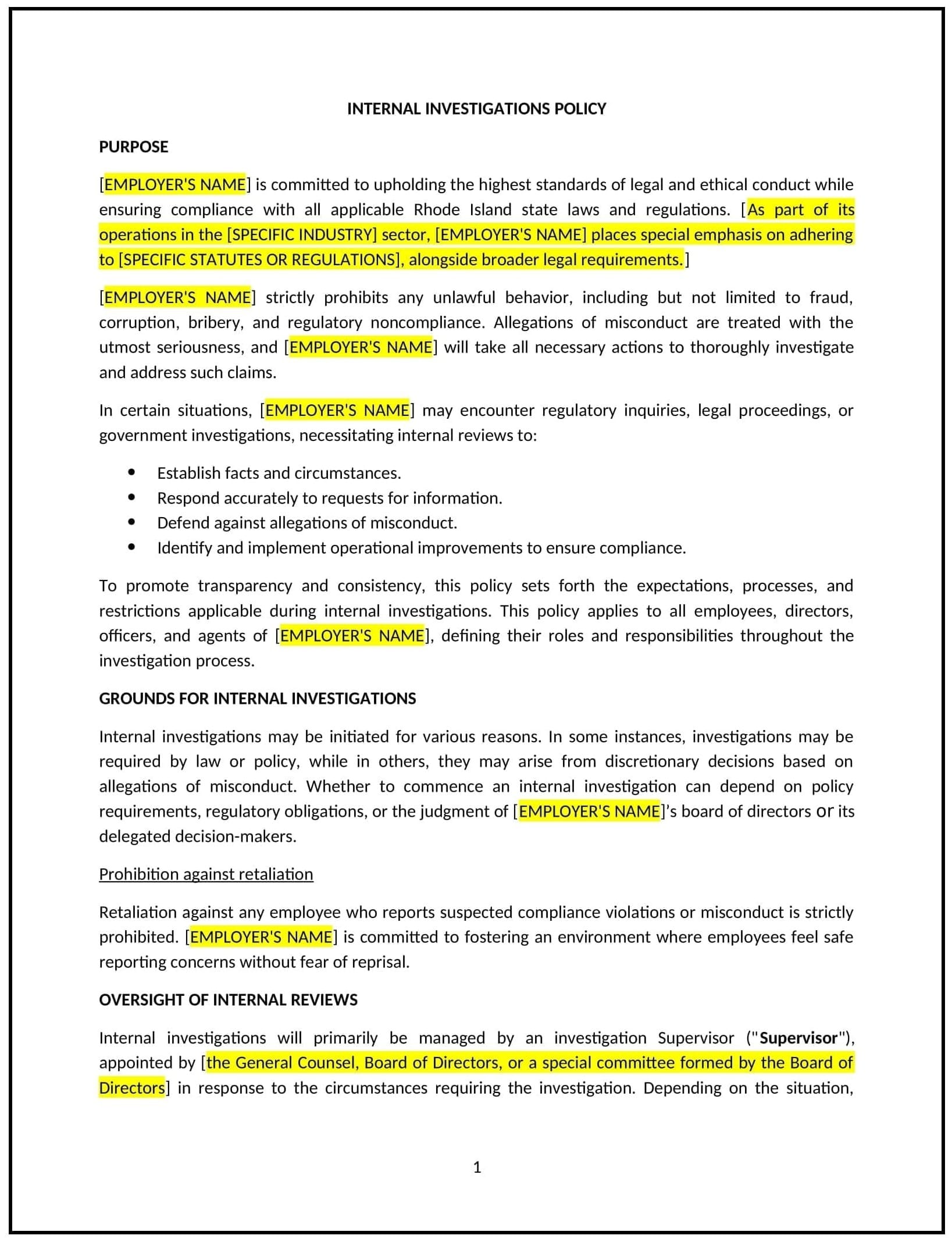Internal investigations policy (Rhode Island): Free template
Got contracts to review? While you're here for policies, let Cobrief make contract review effortless—start your free review now.

Customize this template for free
Internal investigations policy (Rhode Island)
This internal investigations policy is designed to help Rhode Island businesses establish a structured process for handling workplace investigations. Whether addressing allegations of misconduct, policy violations, or workplace disputes, this template ensures businesses can conduct fair and thorough investigations.
By adopting this policy, businesses can promote transparency, maintain trust, and address workplace issues effectively.
How to use this internal investigations policy (Rhode Island)
- Define scope: Clarify the types of issues that warrant an internal investigation, such as harassment, discrimination, or theft.
- Assign roles: Designate individuals responsible for conducting investigations, ensuring they are impartial and trained.
- Establish procedures: Outline steps for initiating, conducting, and concluding investigations, including evidence collection and interviews.
- Ensure confidentiality: Protect the privacy of all parties involved to maintain trust and prevent retaliation.
- Document findings: Record investigation details, outcomes, and corrective actions taken.
- Train managers: Educate supervisors on recognizing issues that require investigations and following proper procedures.
- Review and update: Assess the policy annually to ensure it aligns with evolving business needs and legal standards.
Benefits of using this internal investigations policy (Rhode Island)
This policy offers several advantages for Rhode Island businesses:
- Promotes transparency: Demonstrates a commitment to addressing workplace issues fairly and openly.
- Maintains trust: Builds employee confidence that concerns will be handled appropriately and confidentially.
- Reduces risks: Helps businesses address issues proactively, minimizing legal and reputational risks.
- Supports compliance: Aligns with Rhode Island labor laws and best practices for workplace investigations.
- Enhances workplace culture: Fosters a respectful and accountable environment for employees.
Tips for using this internal investigations policy (Rhode Island)
- Communicate the policy: Share the policy with employees and include it in the employee handbook.
- Provide training: Educate managers and HR staff on conducting impartial and thorough investigations.
- Monitor effectiveness: Regularly review investigation outcomes to identify areas for improvement.
- Address issues promptly: Take corrective action as soon as issues are identified to prevent escalation.
- Update regularly: Assess the policy annually to ensure it aligns with evolving business needs and legal standards.